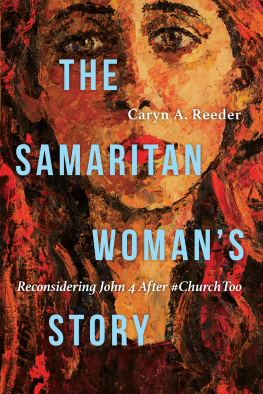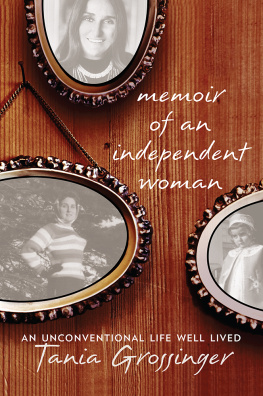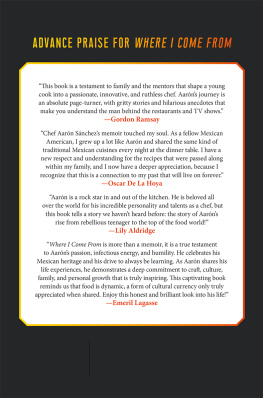ABOUT MY LIFE AND THE KEPT WOMAN
Also by John Rechy:
Novels:
City of Night
Numbers
This Days Death
The Vampires
The Fourth Angel
Rushes
Bodies and Souls
Marilyns Daughter
Our Lady of Babylon
The Miraculous Day of Amalia Gmez
The Coming of the Night
The Life and Adventures of Lyle Clemens
Nonfiction:
The Sexual Outlaw: A Documentary
Beneath the Skin: Collected Essays
Plays:
Tigers Wild (The Fourth Angel)
Rushes
Momma as She BecameBut Not as She Was
ABOUT MY LIFE AND THE KEPT WOMAN
An Autobiographical Memoir
John Rechy

Copyright 2008 by John Rechy
All rights reserved. No part of this book may be reproduced in any form or by any electronic or mechanical means, or the facilitation thereof, including information storage and retrieval systems, without permission in writing from the publisher, except by a reviewer, who may quote brief passages in a review. Any members of educational institutions wishing to photocopy part or all of the work for classroom use, or publishers who would like to obtain permission to include the work in an anthology, should send their inquiries to Grove/Atlantic, Inc., 841 Broadway, New York, NY 10003.
Published simultaneously in Canada
Printed in the United States of America
eBook ISBN-13: 978-1-5558-4811-8
Grove Press
an imprint of Grove/Atlantic, Inc.
841 Broadway
New York, NY 10003
Distributed by Publishers Group West
www.groveatlantic.com
For the Memory of My Mother
I would like to thank Michael Earl Snyder
for his steadfast encouragement
in the writing of this book
This is not what happened; it is what is remembered.
Its sequence is the sequence of recollection.
ABOUT MY LIFE AND THE KEPT WOMAN
I was twelve, and my sister was about to marry her football-captain sweetheart. She was sixteen, he was seventeen, and the approaching union was fraught with dangers whose effects, many years later, would multiply and spread into the core of San Francisco society and would, more years later, help to define my life.
But now it was 1945 in El Paso, Texas, and plans for my sisters wedding had aroused the wrath of the grooms father. A sprig of a man, Seor Antonio Guzman, referred to only as Seor, Sir,bedridden for years and partially paralyzedhad sworn to stop the wedding by whatever means may become necessary. His anger was meant to punish his son, who had, he declared, strayed beyond decent bounds by intending to marry so young, a breach of decorum I will not condone. Being underage, the teenagers required permission of their respective parents. They had my parents for a reason that Seor did not know.
Now, to understand the enormity of Seors wrath at his son, and my mother and fathers escalating anxiety that my sisters wedding proceed immediately, one must know that these implications of danger were swirling on the border of two juxtaposed citiesJurez in Mexico and El Paso in Texascities separated only by a stretch of the Rio Grande, most often a bed of dry sand along whose banks lazy spiders spun their webs.
That geographical proximity had created in Texas a class of unique immigrantsmen and women of education and means who had fled Mexico during the revolution of 1910, when Porfirio Daz, the president turned dictator, was forced into exile, throwing the country into a chaos of shifting factions and loyalties. That class of formerly privileged Mexican immigrants often claimed ancestral lineage to someone noble in Spain.
Displaced and impoverished by the revolution, they were drained once again by the Great Depression. They grasped onto a societal hierarchy, disdaining those Mexicans of Indian ancestry, a fact revealed, they staunchly claimed, by darker skin, by their chicanismoscrude mannerisms, the designation chicano being relegated then to a lower class of Mexicansand by coarse down-tilted eyelashes. Not until years later did I understand why my mother so diligently and gently guided me, five or six years old at the time, to lie on her lap while we sat during stifling Texas nights on the unscreened porch of our dilapidated house as she curled my already curly long eyelashes with a saliva-moistened finger.
The two groups of Mexican immigrants had this in common: Spanish was the language of communication; English was practiced only as necessary among older Mexicans, though increasingly among the younger ones. My mother, like others of her generation and by announced choice, never learned English, considering speaking English to be a betrayal of the country her family had been forced by turmoil and circumstances to flee. At home, we spoke only Spanish.
During World War II, just recently ended, Mexican families with sons in the military had made a notable exception to their clinging fealty to Mexico. They were swept into patriotic fervor. Square signsred, white, and bluesprouted in windows: Our Son is Serving America.
My mother went to church almost daily to recite tearful rosaries for the safety of my brothers: Robert, the older of the two, in the South Pacific; and Yvan, the younger, in Germany. Both would be returning soon, a fact that made me lament that that would not occur sooner so they might use their military skills to thwart the growing menace of Seor.
Through tumultuous times in El Paso, the class of once privileged immigrants, however poor they increasingly became like other Mexicans in the foreign state of Texas, retained from their previous culture, unbudging attitudes toward social propriety and morality. Those included a staunch belief in the Catholic church and in the sacred virginity of the Holy Mother, considered the Mother of God, not only of Christ. They held an equally staunch belief in the virginity of unwed women.
Seors initial threat to stop the marriage of my sister Olga and his son Luis soon escalated into an overt declaration of war conveyed by his tiny wife in a second visit to my familythe first visit had announced his fierce opposition.
Seors wife was a woman so small, so like a buzzing hummingbird, that it was difficult to believe what was generally known, that she daily dressed Seor in suit, tie, and shoes, and then carried him, coaxing, pushing him a little, and finally shoving himgentlyto a reclining couch, where, propped up, he glowered through a window and denounced the modern worlds immorality. What she probably suspected and what had coaxed my father and mother to grant permission for the union was that my sister was pregnant by Seors burly son and might very soon begin to swell.
Whether knowing of the pregnancy would have caused Seor to relentor to fall deadwas something his wife and son preferred not to chance. Any more revelations, the fluttery woman said after she had delivered Seors emphasis on his earlier warning, will enrage him to the point that we will all be in mortal danger, God help us!
Over my dead body hell stop the wedding, my father proclaimed, launching a war of tyrantshe would not allow another tyrant to impose his will on his own daughter, and therefore on him. He, like Seor, ruled rigidly over his family; He did not permit anyone else to even question our conduct. (Once, he confronted a truant officer who had captured me leaving the Texas Grand Theater by the exit door that I used to squeeze in freeI had gone to see Claire Trevor and John Wayne in
Next page










